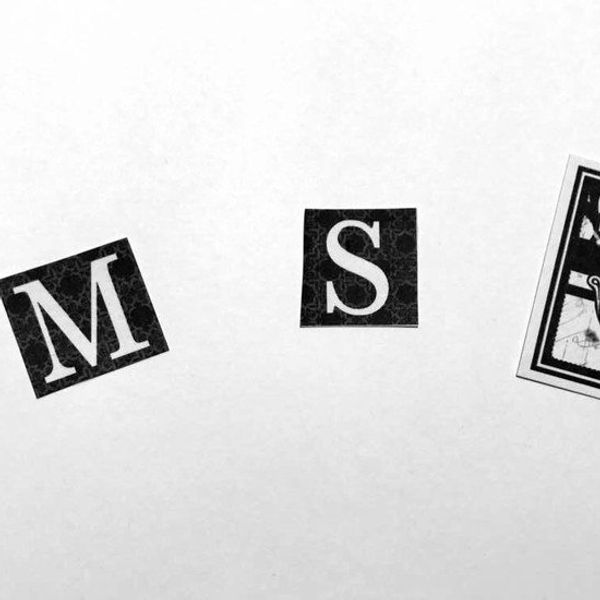Being a writing/rhetoric major and linguistics minor, I'm faced with the question of what is writing. Recently, in a writing/rhetoric class, I was asked to put down a brief summary or highlight of what I had learned throughout the semester about writing and written communication.
When asked to put down major findings from the lessons, this was the first sentence that popped into my head: Writing is human interaction. What I mean by this is that writing is one of the few modes of expression we have that utilizes every bit of who we are. On top of that, it is the one we use most, other than speech, to communicate thought. It begins with a neuro-chemical reaction, thoughts being synthesized and memories accessed, all while translating this amalgam of hormones and firing neurons onto a page. All that we are, were, and plan to be is part of this, both on a biological scale and a “spiritual” scale. The pathways our neurons grew stronger in, the choices we made, the memories we have, all guide our task in communicating thought through language. Refined language, that is.
It's not the doing that is truly amazing; it is the reception. Writing is as close to seeing into someone else’s mind as we can get, and the writer is responsible for making that as easy as possible. This is why the language we use must be refined, hammered, and forged into a razor-like blade that can cut right to it, so to speak. Without the proper heat, tempering, shaping, and hammering a blade will turn out weak, unbalanced, and not fit for the job intended. Writing is the same. A blade made for skinning is no good at chopping, just as a poem, though it may be profound and elicit thought, is no good at giving instructions as a manual would. The language used in these pieces must be appropriate too, considering audience and attention.
Audience is simple: who is being written to or for. But attention is a little different; it's more the nuances of why and how (I use attention as in the form of what to pay attention to, why, and how, as well as the details of capturing and audience, and so on). Audience is like the blade shape: It defines what will be done and how. The attention is like the edge and blade geometry: It will determine how well the task will be done and works better when more specified. A dull blade is much more dangerous than a sharp one, just as ill-composed and un-thought-out language is more dangerous than refined and determined language. Both will prevent mistakes, mishaps, and injury if sharp. Edge/blade geometry is a beast to master, just as specified language is. If the geometry of your blade is just off enough, it could mean the difference between a strong, biting chop with an axe and a glancing, ineffective blow. If your language is just enough skewed or able to be misconstrued, it makes the difference between saying one thing rather than many. A blade must be shaped well for its task; language is the same.
The mind is the great forge of writing. I have talked about the biological reasoning behind it all, but the “spiritual” aspect I have not discussed. In this forge, language and memory are mixed in careful, measured amounts. Heat and carbon. Heat to temper and forge, carbon to harden and strengthen. We add, bit by bit, our own memories and experiences while refining our language in order to make it stronger, easier to use, more durable in a sense. Both must interact, mix, alloy, and become something better. This can go awry, of course, but our job as responsible smiths is to make something usable and valuable for the user. While writing, we interact with the past, present, and future. A smith does the same. What has been done in the past to make this better? Are my muscles strong enough, skills honed enough? What am I doing now, and how will I be doing it? And where will this go, who will use it, and why? It would be irresponsible not to consider all of these things. And that is at the crux of the matter.
Writers must be consciously responsible about what they are doing, for to not is careless and the mark of unskilled work.
We live in a world that relies heavily on writing, but does not always emphasize the importance of its craft. And as you can see, I do mean craft in the sense of creating something out of raw materials. Everyone who writes is responsible for what they add to the great noise of human communication and for ensuring that what they add is positive.
Keep crafting, my friends.




















